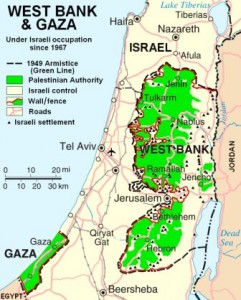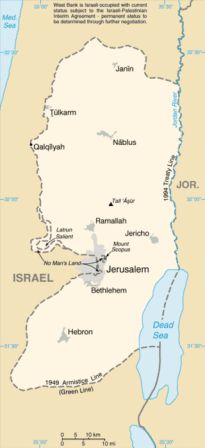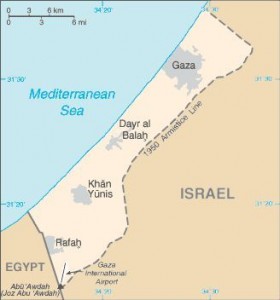IASbaba's Daily Current Affairs Analysis, International, National, UPSC
IASbaba’s Daily Current Affairs – 23 June 2015
NATIONAL
Moving from Cash to Card payment: Why is it a win-win situation for all?
- One of the ways to curb the flow of black money is to discourage transactions in cash. In line with this agenda, the Union government has proposed a series of measures aimed at moving towards a cashless economy, to improve the ease of conducting transactions for individuals, build a transaction history to enable improved credit access and financial inclusion, reduce tax avoidance and minimize the impact of counterfeit money.
- According to the Draft proposal –
Incentives for Consumers:
- Income tax rebates for consumers who use debit and credit cards to make their payments, removing convenience fee, service charge, surcharge for card payments at petrol pumps, gas agencies and for railway tickets.
Incentives for Merchants/Service Providers to move towards acceptance of cashless payment mode:
- Tax benefits, 1-2 % reduction in value added tax (VAT) could be considered on all electronic transactions by the merchants
- The government is also looking at reduction in the Merchant Discount Rate, which is the rate charged to a merchant by a bank for providing debit and credit card services.
- Utility service providers could be advised to give a discount to users for small ticket payments through e-payments, on the lines of BSNL, which provides an incentive of 1% of the billed amount if the payment is done through electronic mode.
- The draft proposal for facilitating electronic transaction caters to all stakeholders, from the consumer to the merchant, and even the banks. It is quite a prevalent practice in several countries like Belgium, France, Canada and United Kingdom where cashless payments account for over 80-90% of the total value of consumer payments.
Connecting the Dots:
- How black money circulation impacts social and economical aspects of a nation?
- What are the other ways of curbing Black Money? What are the steps taken by the government in this regard?
- Other issues related to it like Money laundering, GAAR General Anti-Avoidance Rule (GAAR).
INTERNATIONAL
U.N. accuses Israel, Hamas of committing war crimes
- According to the recently released United Nations report both Israel and Palestinian militants have committed war crimes during last year’s (2014) Gaza war, which has led to unprecedented devastation and human suffering.
- Israel has denied the allegations. However, Hamas has welcomed the report as this can further their process to International Criminal Court (ICC).
Background:
West bank
The West Bank is a landlocked territory near the Mediterranean coast of Western Asia, forming the bulk of the Palestinian territories. The West Bank shares boundaries to the west, north, and south with the state of Israel, and to the east, across the Jordan River, with Jordan. The West Bank also contains a significant coastline along the western bank of the Dead Sea.
Gaza Strip
The Gaza Strip is a pene-exclave region of Palestine on the eastern coast of the Mediterranean Sea that borders Egypt and Israel. Gaza makes up part of the Palestinian territories which includes the West Bank. In 2012 the United Nations General Assembly “accorded Palestine non-Member Observer State status in the United Nations”.
Gaza-Israel Conflict

The Gaza–Israel conflict is a part of the wider Israeli–Palestinian conflict. Palestinian militant actions escalated in the Gaza Strip following the overwhelming election to government of the Islamic political party Hamas in 2005 and 2006. The conflict escalated with the split of the Palestinian Authority to Fatah government in the West Bank and the Hamas Government in Gaza and the following violent ousting of Fatah. Palestinian rocket attacks on Israel and the joint Israeli-Egyptian blockade of Gaza have exacerbated the conflict.
International Criminal Court (ICC)
- The International Criminal Court (ICC) is an intergovernmental organization and international tribunal that sits in The Hague in the Netherlands.
- The ICC has the jurisdiction to prosecute individuals for the international crimes of genocide, crimes against humanity, and war crimes.
- The ICC is intended to complement existing national judicial systems and it may therefore only exercise its jurisdiction when certain conditions are met, such as when national courts are unwilling or unable to prosecute criminals or when the United Nations Security Council or individual states refer investigations to the Court.
- The ICC began functioning on 1 July 2002, the date that the Rome Statute entered into force. The Rome Statute is a multilateral treaty which serves as the ICC’s foundational and governing document. States which become party to the Rome Statute, for example by ratifying it, become member states of the ICC. Currently, there are 123 states which are party to the Rome Statute and therefore members of the ICC.
Courtesy – Wikipedia
Connecting the Dots:
- Understand the Historical Perspective of the conflict between Israel and Palestine.
- What is the present situation? Is Palestine a recognized country?
- Role of International Criminal Court (ICC) in settlement of War crimes.
Heat Wave Kills Around 400 People in Karachi
What is Heat Wave?
- A heat wave is a prolonged period of excessively hot weather, which may be accompanied by high humidity, especially in the west coasts of the middle latitude continents.
- A heat wave is measured relative to the usual weather in the area and relative to normal temperatures for the season. Temperatures that people from a hotter climate consider normal can be termed a heat wave in a cooler area if they are outside the normal climate pattern for that area.
How does it occur?
- Heat waves are most common in summer when high pressure develops across an area. High pressure systems are slow moving and can persist over an area for a prolonged period of time such as days or weeks.
Consequences of Heat Wave
- Severe heat waves have caused catastrophic crop failures, thousands of deaths from hyperthermia, and widespread power outages due to increased use of air conditioning. A heat wave is considered extreme weather, and a danger because heat and sunlight may overheat the human body
Courtesy – Wikipedia
ECONOMICS
Capacity building in Banks and Non-Bank Institutions:
- The Committee on Capacity Building in Bank and Non-Bank Institutions was set up by the RBI in response to recommendations by the Financial Sector Legislative Reforms Commission (FSLRC), a body set up in 2011 to reform the institutional and legal structures of the financial sector.
- The concept of capacity building is not just about training. It goes beyond – it includes human resource development, organisational development, institutional and legal framework development.
Importance of Capacity-building in the Banking Sector:
- Capacity building underlines the strategic importance of Human Resource management practices both at the top and the bottom levels, requiring employees to pass certification programmes prior to being promoted; designing banking aptitude test and leadership development.
- In the backdrop of recent financial (2008 financial crisis, Euro crisis etc.) crisis worldwide due to the weakness in corporate governance, capacity building becomes even more important at the board and top management levels.
- The Indian Banking Regulation Act (1949) required only 51 % of the board of a banking company to have specialist knowledge. With the new committee setup, RBI is looking forward to include systematic induction, training programs and mandatory certification of all directors.
Background :
- The Financial Sector Legislative Reforms Commission (FSLRC) was set-up by Government of India, Ministry of Finance in March 2011, to comprehensively review and redraw the legislations governing India’s financial system.
- According to the FSLRC, the current regulatory architecture is fragmented and is fraught with regulatory gaps, overlaps, inconsistencies and arbitrage. To address this, the FSLRC submitted its report to the Ministry of Finance on March 22, 2013, containing an analysis of the current regulatory architecture and a draft Indian Financial Code to replace the bulk of the existing financial laws.
- This Commission is chaired by a former Judge of the Supreme Court of India, Justice B. N. Srikrishna and has an eclectic mix of expert members drawn from the fields of finance, economics, public administration, law etc.
With regard to Regulators:
- With respect to regulators, the FSLRC stresses the need for both independence and accountability. The draft Code adopts ownership neutrality whereby the regulatory and supervisory treatment of a financial firm is the same whether it is a private or public company.
- The draft Code seeks to move away from the current sector-wise regulation to a system where the RBI regulates the banking and payments system and a Unified Financial Agency subsumes existing regulators like SEBI, IRDA, PFRDA and FMC, to regulate the rest of the financial markets.
- FSLRC envisages a unified Financial Sector Appellate Tribunal (FSAT), subsuming the existing Securities Appellate Tribunal (SAT), to hear all appeals in finance.
For more information – http://www.prsindia.org/parliamenttrack/report-summaries/financial-sector-legislative-reforms-commission-2792/
Connecting the Dots:
- Are the recommendations made by FSLRC feasible? Especially with regard to having a unified Financial Sector Appellate Tribunal (FSAT, subsuming the existing Securities Appellate Tribunal (SAT), to hear all appeals in finance.
- What are the weaknesses in corporate governance? How can it be improved? What are the measures taken by the Government or RBI in this regard?
Please feel free to share your thoughts on IASbaba’s Daily Current Affairs. Your valuable feedback is the only motivating factor for our Team.
Thank you 🙂
















